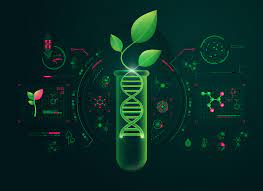
Genetic engineering, also known as genetic modification, is the direct manipulation of an organism’s genome using biotechnology. It is a set of technologies used to change the genetic makeup of cells, including the transfer of genes within and across species boundaries to produce improved or novel organisms.
Genetic engineering techniques have been applied in numerous fields including research, medicine, and industry. Genes are transferred between organisms using a variety of methods, including the use of recombinant DNA, direct injection of DNA into cells, and the use of viruses or other gene-vector systems. These techniques are generally used to introduce new traits or characteristics to an organism, such as an increased resistance to disease, enhanced nutritional value, or improved growth rate.
Genetic engineering has been used to produce a variety of new products and organisms. In agriculture, genetic engineering has been used to produce crops with improved yields and resistance to pests and disease. In medicine, genetic engineering has been used to produce vaccines, drugs, and hormones. Genetic engineering has also been used to create genetically modified animals for research or as pets.
Genetic engineering has been controversial since its inception. Critics argue that it is not safe and may have unexpected consequences. Proponents argue that it offers potential benefits and can be used to improve the quality of life. Despite the controversy, genetic engineering is becoming increasingly common and has the potential to revolutionize the way we produce and consume food, medicine, and other products.
